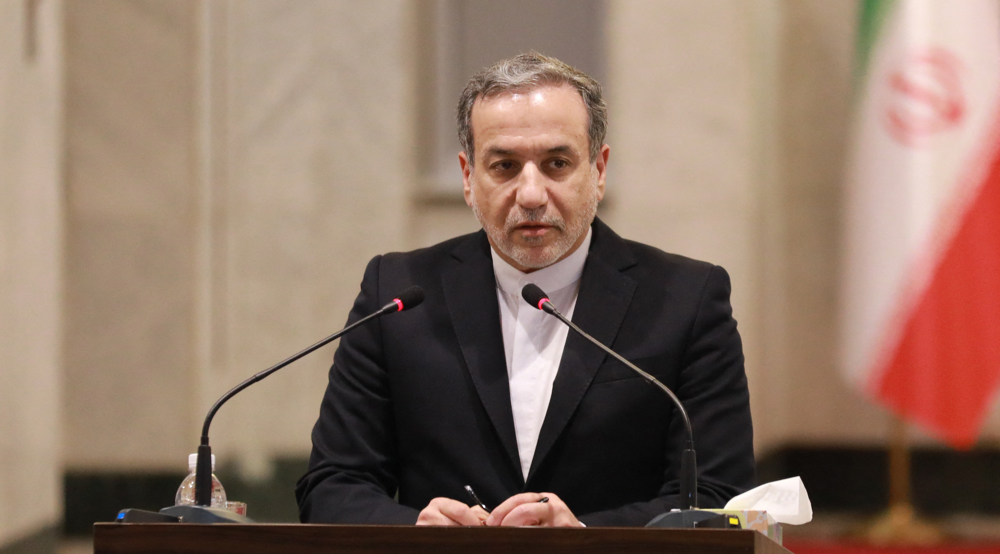AhlulBayt News Agency: Foreign Minister Abbas Araghchi says the process of indirect talks between Iran and the United States via Oman’s intermediary role has been halted “due to the specific circumstances of the region.”
“Oman has always contributed greatly to solving the regional problems; and regarding Iran and the US, it has always tried to play a positive role in conveying a message or preparing the ground for negotiations,” Araghchi, who is on a visit to Muscat, said on Monday.
He said Oman’s intermediary role, within the framework of the “Muscat process,” has resulted in establishing indirect talks between Tehran and Washington.
“Currently, we do not see any ground for these talks, until we can get past the current crisis,” the top Iranian diplomat stated, noting that Tehran would decide whether to resume the process.
Asked whether he conveyed a message to the US during his visit to Oman, Araghchi said, “During the trip, no message has been sent to other countries.”
He added that in talks with officials of regional countries, he announced Iran’s stance and called on them to inform all sides of the Islamic Republic’s position.
The minister said both the US and European countries as well as regional states must be aware of Iran’s stance on regional developments.
“Our position is crystal clear and we have repeated many times that we do not want war and conflict although we are fully prepared for it. We think that diplomacy should work,” Araghchi said.
He said the region is in an “alarming” state and may face extensive conflicts. Only diplomacy can prevent major crises and intensification of tension and war, the Iranian minister said.
Iran launched hundreds of missiles towards the Israeli entity’s military, and espionage and intelligence bases all over the occupied territories on October 1 as part of Operation True Promise II.
The operation came in response to the regime’s assassination of senior leaders of the Palestinian and Lebanese Resistance front and a commander of the Islamic Revolution Guards Corps (IRGC). Israel has since vowed to respond.
/129
“Oman has always contributed greatly to solving the regional problems; and regarding Iran and the US, it has always tried to play a positive role in conveying a message or preparing the ground for negotiations,” Araghchi, who is on a visit to Muscat, said on Monday.
He said Oman’s intermediary role, within the framework of the “Muscat process,” has resulted in establishing indirect talks between Tehran and Washington.
“Currently, we do not see any ground for these talks, until we can get past the current crisis,” the top Iranian diplomat stated, noting that Tehran would decide whether to resume the process.
Asked whether he conveyed a message to the US during his visit to Oman, Araghchi said, “During the trip, no message has been sent to other countries.”
He added that in talks with officials of regional countries, he announced Iran’s stance and called on them to inform all sides of the Islamic Republic’s position.
The minister said both the US and European countries as well as regional states must be aware of Iran’s stance on regional developments.
“Our position is crystal clear and we have repeated many times that we do not want war and conflict although we are fully prepared for it. We think that diplomacy should work,” Araghchi said.
He said the region is in an “alarming” state and may face extensive conflicts. Only diplomacy can prevent major crises and intensification of tension and war, the Iranian minister said.
Iran launched hundreds of missiles towards the Israeli entity’s military, and espionage and intelligence bases all over the occupied territories on October 1 as part of Operation True Promise II.
The operation came in response to the regime’s assassination of senior leaders of the Palestinian and Lebanese Resistance front and a commander of the Islamic Revolution Guards Corps (IRGC). Israel has since vowed to respond.
/129

